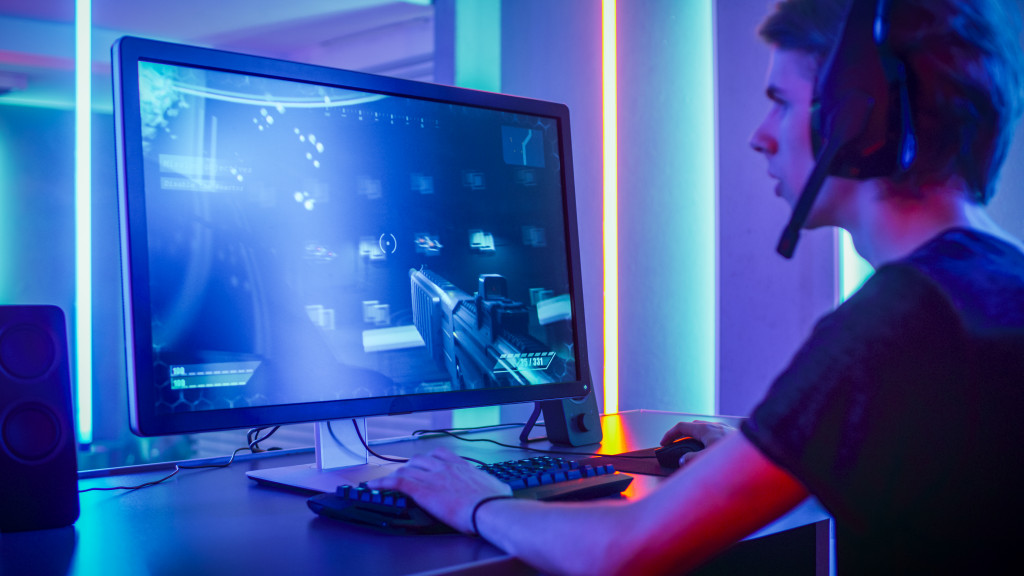If you grew up in the 80s or 90s, chances are you have fond memories of spending hours huddled around the family TV with your siblings, cousins, or friends playing video games. From classics like Super Mario Bros. and Sonic the Hedgehog to more recent hits like Minecraft and Fortnite, video games have provided hours of entertainment for children (and adults!) of all ages.
But did you know that there are actually many benefits to gaming? That’s right. Gaming today is a technological innovation that can help children in various ways – from improving their critical thinking skills to helping them connect with peers and family.
So if you’re wondering whether or not you should encourage your child to start playing video games, here are a few reasons why the answer is yes:
Gaming can improve problem-solving skills
If you’re looking for a way to improve your children’s problem-solving skills, you may consider letting them play video games. While it may seem like an unlikely solution, research has shown that gaming can actually help kids develop important analytical and creative thinking skills.
For example, games requiring players to figure out puzzles or navigate complex environments can help kids think outside the box and find creative solutions to problems. In addition, games that involve strategic planning and resource management can teach kids how to make decisions under pressure and think ahead.
Gaming can improve social skills and teamwork
As any parent knows, children are constantly learning and growing. They learn by observing the world around them and trying new things. One way that children can learn valuable social skills is through gaming.
When kids play games together, they have to communicate and cooperate to succeed. This encourages them to develop their social skills and learn to work as a team. In addition, gaming can teach kids how to handle winning and losing gracefully.
Gaming can improve hand-eye coordination
Gaming can also help improve hand-eye coordination in kids. This is because games require players to constantly track moving objects and respond quickly. As a result, kids who play games regularly tend to develop better hand-eye coordination than those who don’t.
Games that can improve hand-eye coordination include sports-related games, first-person shooter games, and driving simulators. With these games, kids must coordinate their hands and eyes to succeed.
Gaming can improve memory and concentration
You might not think that video games and memory have anything in common, but research has shown that gaming can actually improve memory and concentration for kids. One study found that after eight weeks of playing a memory-based game, kids showed significant improvements in their working memory, which is the kind of memory used for everyday tasks like following directions and solving math problems.
The kids in the study also had better focus and concentration and were better able to filter out distractions. In another study, kids who played a strategy game for just 20 minutes a day showed improvements in their short-term memory, executive function, and problem-solving skills.
Gaming can relieve stress and promote relaxation
While video games are often considered a form of entertainment, they can also be used in therapeutic settings to help kids relieve stress and relax. For example, some hospitals have begun using virtual reality gaming and other forms of technology to help children overcome fears or manage pain and anxiety during medical procedures.
In addition, researchers have found that playing games can help children struggling with chronic stress or anxiety. For example, one study found that kids who played a virtual reality game for 30 minutes every day for two weeks were less stressed and showed fewer signs of depression than those who didn’t.
Gaming can promote healthy habits and physical activity
Gaming can also be a great way to encourage kids to embrace a healthy lifestyle and get more physical activity. For example, many games now incorporate fitness-tracking features that allow players to earn rewards for taking steps or running around the neighborhood.
This combination of gameplay and exercise helps kids stay active while having fun and exploring new worlds. So if you’re looking for ways to encourage your child to get more active, consider introducing them to some of the many fun and engaging games available today.
How to get your child started in gaming

If you want to encourage your child to start gaming, there are several steps you can take. First, invest in quality video game hardware, such as a high-quality gaming console or a gaming PC equipped with the latest graphics and processing power. A high performance gaming PC build or a console setup will ensure that your child can play the latest and greatest games without experiencing any lag or other performance issues.
Next, look for games appropriate for your child’s age and interests. For younger children, try introducing them to simple puzzles or card games that can help improve their hand-eye coordination and problem-solving skills.
Another important step is to set a good example by playing games with your child yourself. This can help instill a positive association between gaming and enjoyment and show your child the value of teamwork, collaboration, and other important skills.
Ultimately, the key to getting your child interested in gaming is to make it fun and engaging. This can involve playing games together as a family, exploring different types of games, or even hosting game-themed activities or events at home. With some creativity and effort, you can help ensure that your child enjoys the many benefits of gaming for years to come.

